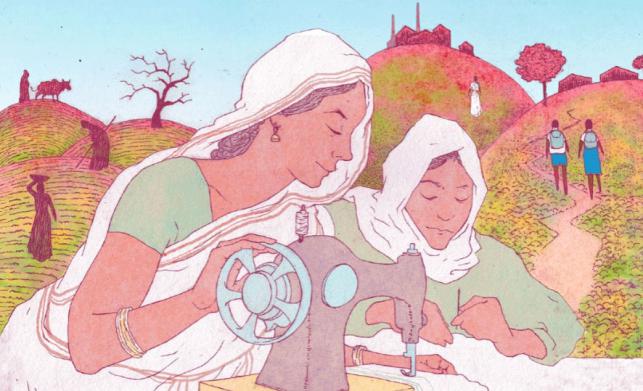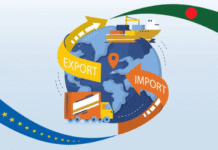Bangladesh may gain from price-hike of China’s apparel exports if the country can improve productivity, product quality and reliability, alongside better safety and industry compliance, according to a new World Bank report.
The country performs poorly in the areas of compliance, quality and reliability, says the report adding that wages and working conditions have long been a source of concern.
The WB report “Stitches to Riches: Apparel Employment, Trade and Economic Development”, released on Monday, mentioned that with $22.8 billion annual exports, Bangladesh has the largest apparel export industry in South Asia.
The country has at 6.4 per cent the largest market share of global apparel exports in the region where 4.7 million workers are directly and 20.3 million indirectly employed in apparel sector shows the report.
“Bangladesh stands to gain greatly in terms of jobs from additional apparel exports,” said the report referring to a scenario that a 10 per cent increase in Chinese prices to the United States would lead to an increase of over 4 per cent each in male and female employment in Bangladesh.
“The apparels sector in Bangladesh tells a remarkable story of women’s empowerment by significantly increasing female participation in the labor force,” said WB country director Qimiao Fan.
He explained that the apparel industry is extremely important to Bangladesh’s economy, accounting for 83 per cent of total exports.
“The potential decrease in Chinese exports presents a huge opportunity for Bangladesh, if it can meet global buyers’ requirements for cost, quality, lead time, reliability and compliance with safety standards and other policies,” the WB official expressed his views.
The report also said Bangladesh may not benefit from rise in Chinese apparel prices in the European Union market since the country is hardly likely to substitute China’s products.
“Competition is increasing in the global apparels market with buyers moving towards greater consolidation in sourcing decisions and the impending approval of the Trans-Pacific Partnership,” said Gladys Lopez-Acevedo, report co-author.
“Bangladesh should capitalize on its position as regional leader and implement policies to improve the quality of its product,” the WB economist noted.
Still, Bangladesh will be able to increase exports and capture more jobs from China’s gradual exit from the clothing market and compete with Vietnam, Cambodia and Indonesia, if it successfully implements reforms, said the WB report.
It pointed out that Bangladesh’s apparel firms produce large quantities of apparel at low costs, due largely to its low wage rates. “The benchmarking highlights that Bangladesh has the lowest prices.”
The report also mentioned that following Rana Plaza factory collapse in 2013, Bangladesh’s apparel industry — in collaboration with the government, foreign buyers and development partners — has agreed on several policy measures to improve factory safety and social compliance.
However, the report said, negotiating collective bargaining agreements is still very difficult.
“Female workers in particular lack voice and representation in the country’s weak industrial relations system. And regulatory capacity is generally weak because of underfunded, understaffed, and underequipped labor ministries, inspectors, and courts,” the report observed.
Source: Prothom Alo










